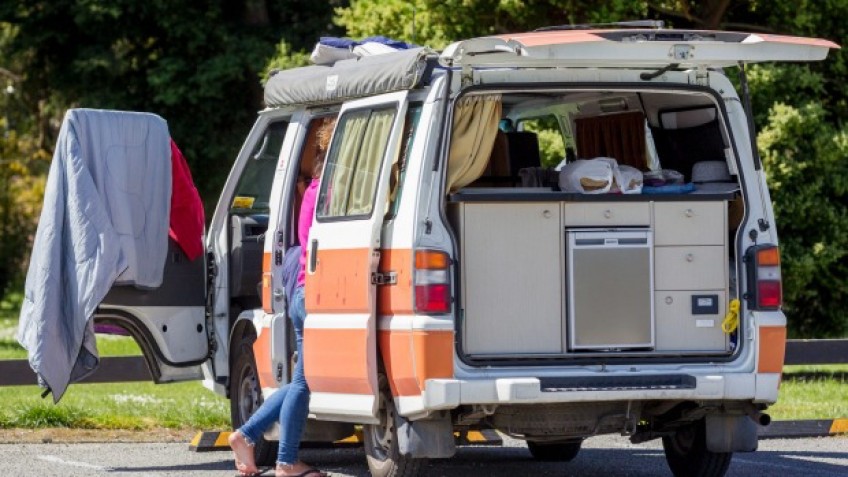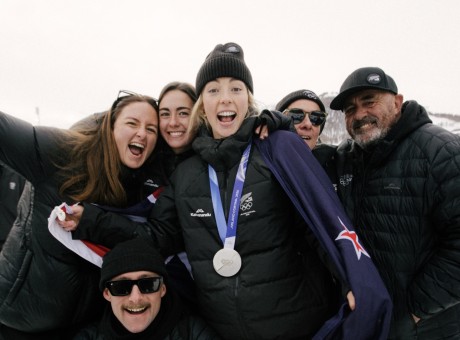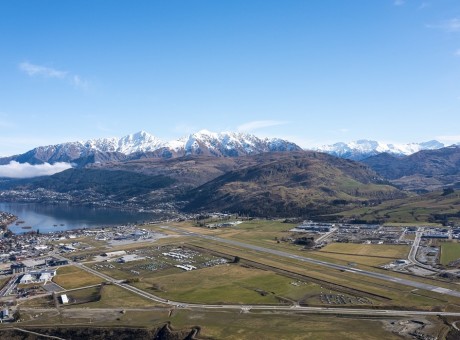Calls to remove Lake Wānaka site from Freedom Camping Bylaw

Freedom campers will soon be able to park up at 15 locations around Queenstown as the council’s Freedom Camping Bylaw comes into effect. But not everyone is happy.
A group of locals, calling themselves Save Clean New Zealand is petitioning for a Lake Wānaka location to be removed from the bylaw.
Their petition has attracted more than 1100 signatures in four weeks.
Queenstown Lakes District Council developed the new Freedom Camping Bylaw because its old 2021 bylaw was quashed by the High Court last year after the Motor Caravan Association sought a judicial review.
The High Court found the bylaw was “tainted” because it tried to ban camping based on amenity values like views and noise, which wasn’t consistent with the Freedom Camping Act 2011.
With no bylaw in place last summer, freedom campers arrived in force frustrating locals who reported rubbish and overcrowding.
The council developed this replacement bylaw and consulted on it throughout July, receiving 383 submissions. It was adopted in October and takes effect on December 1.
Save Clean New Zealand is petitioning for the removal of Beacon Point Rd from the bylaw “to protect the environment and all who enjoy this area”.
Under the bylaw, campers at Beacon Point Rd must be in certified self-contained vehicles, use one of three marked spaces, only stay between 6pm and 8am and no more than two nights in 30, not leave waste or light fires. Many of the other sites have the same restrictions, with the main difference being the hours campers may stay.
Save Clean New Zealand says allowing freedom camping at the site risks “irreversible environmental degradation” of nearby wetlands and lakefront habitats.
![]()
- Beacon Point will have three freedom camping parking spots under the bylaw. Photo / Google Maps
They say, in the petition, freedom camping close to Lake Wānaka poses threat of contamination from human waste, greywater and litter impacting wildlife, recreation and drinking water.
“Beacon Point Road is narrow and already heavily used by pedestrians, cyclists, and families. The addition of campervans and overnight parking will create congestion and hazardous conditions. Daily access for residents, recreational users, and emergency services could be compromised. Protecting safe and equitable access to this area is essential for the wellbeing of both locals and visitors.”
Petition organiser Andrea Beryl said the group is currently developing a strategy for its next steps.
“We want to attack this correctly without wasting everybody’s time.”
“We’re not against freedom camping. We just believe that it needs to be done correctly with the proper facilities,” Beryl said.
She said access to the site was via a narrow road, and the proposed hours would be difficult to police. She is also concerned people will wash themselves in the lake using body washes and dishes using soap.
She said last year, in the absence of a bylaw freedom campers took up parking spots and left rubbish and human waste behind.
“We’re just trying to prevent that, protect the environment and protect that area because you can’t reverse it.”
Under the Freedom Camping Act, the scope for establishing bylaws is limited and areas can only be designated as restricted (meaning freedom camping is allowed subject to conditions) or prohibited (meaning freedom camping is not allowed) if it is to protect the area, access to the area, or health and safety of visitors to the area.
Impacts on private property aren’t considered.
![]()
- The Beacon Point Rd camping location outlined in blue.
Councillor Niki Gladding said the council was bound by the act when it came to what could be considered.
“If we deviate ... even just a little bit it can cause real problems because it can create an angle whereby the bylaw as a whole can be challenged.”
Gladding said amenity of neighbouring properties was considered in the previous bylaw, and that was one reason it was overturned.
Gladding said freedom camping ambassadors would be going around taking photos and talking to freedom campers and the council would respond to any issues.
“What we need to do now is make sure that we monitor the site,” she said.
Deputy Mayor Quentin Smith said he had spoken to concerned residents about the site.
“I don’t think it’s fair that residents should have campers next to their properties so I don’t personally support that site but I accept it is a part of the bylaw that was approved by council,” he said.
“The Freedom Camping Act is not fit for purpose in our district and we have more freedom campers than anywhere else in the country which makes our circumstances unique.”
When the bylaw was adopted, QLDC Community Services General Manager Ken Bailey said it would address a range of perceived problems associated with freedom camping in the district.
“Queenstown Lakes is the most popular place for overnight free camping in New Zealand, and this has led to a range of adverse impacts on land controlled and/or managed by Queenstown Lakes District Council,” he said. “The new bylaw has been designed to ensure visitors can continue to enjoy the freedom camping experience in our district, balancing their needs with those of local communities.”
The fifteen restricted areas where freedom camping is allowed, subject to a set of conditions specified for each area are:
-
Boundary Street Carpark, Queenstown
-
Gorge Road Carpark, Queenstown
-
Industrial Place Carpark, Queenstown
-
Lakeview Carpark, Queenstown
-
Gray Street Carpark, Frankton
-
Queenstown Events Centre Carpark, Frankton
-
Howards Drive Carpark, Lake Hayes
-
Hansen Place Carpark, Arrowtown
-
Gibbston Highway/SH6 Carpark, Gibbston
-
Glenorchy Domain Carpark, Glenorchy
-
Kingston Road/SH6 Carpark
-
Wānaka Recreation Centre Carpark, Wānaka
-
Beacon Point Road Carpark, Wānaka
-
Allenby Place Carpark, Wānaka
-
Camp Hill Road Carpark, Hāwea
Main image: Credit Freedom Camping Solutions
























